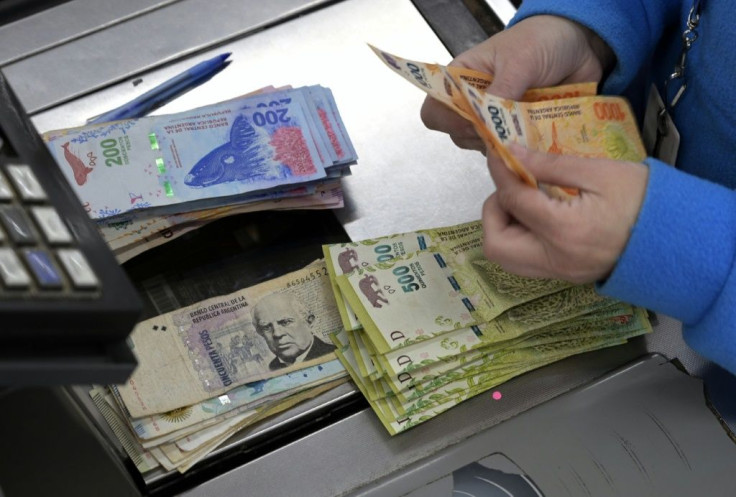Millionaires' Tax For Virus Relief Takes Effect In Argentina
A one-off tax on Argentina's richest people to help pay for medical supplies and relief for small businesses battered by the global coronavirus pandemic entered into force on Friday.
A law passed by the Senate in December by a vote of 42-26 approved the levy on people whose assets exceed 200 million pesos (about $2.3 million).
The center-left government of President Alberto Fernandez hopes to raise about $3 billion from taxing the richest 12,000 of Argentina's 44 million inhabitants.
More than 40 percent of the country's population lives under the poverty line.
Starting Friday, the national tax authority is authorized to start calculating and claiming the amounts due.
Under the law, those who are taxable will pay up to 3.5 percent on assets declared within the country, and up to 5.25 percent on assets held abroad.
The proceeds will be used to buy medical supplies, aid small and medium enterprises, fund social aid, and to provide natural gas to people off the energy grid.

The measure has been criticized by Argentina's center-right opposition, which has described it as "confiscatory."
And the Argentine Rural Society, which represents the interests of large farmers in a country whose income depends heavily on grain and cattle production, has expressed fear the measure would become permanent.
Argentina has been badly hit by the coronavirus, with more than 1.9 million confirmed cases of infection and more than 47,000 deaths.
The pandemic has exacerbated the already high poverty rate in a country which has been in recession since 2018, and has an unemployment rate of 11.7 percent.
In its annual report on economic inequality, Oxfam said Monday the world's 1,000 richest people had recouped their coronavirus-related losses within nine months, while it could take the world's poorest more than a decade to recover from the impacts of the global health crisis.
"The world's 10 richest men have seen their combined wealth increase by half a trillion dollars since the pandemic began -- more than enough to pay for a Covid-19 vaccine for everyone and to ensure no one is pushed into poverty by the pandemic," it said.
Oxfam said "progressive taxation" of the rich is key to any equitable recovery from the crisis, and said Argentina had "showed the way" with its temporary solidarity wealth tax.
"A tax on the excess profits earned by corporations during the coronavirus pandemic could generate $104 billion -- enough to provide unemployment protection for all workers, and financial support for all children and elderly people in the poorest countries," it added.
© Copyright AFP {{Year}}. All rights reserved.





















